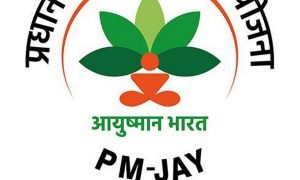In India, the Beating Retreat ceremony, performed at Vijay Chowk in Delhi in the evening of January 29 every year, marks the end of Republic Day festivities
New Delhi:
The government has chosen to omit ‘Abide With Me’, the solemn hymn that signalled the conclusion of the Beating Retreat ceremony – a centuries-old military tradition that, in war, marked the end of fighting for the day, with soldiers sheathing arms and withdrawing from the battlefield.
In India, the Beating Retreat ceremony, performed at Vijay Chowk in Delhi in the evening of January 29 every year, marks the end of Republic Day festivities.
The decision to omit the popular hymn comes a day after the government ‘shifted’ the ‘eternal flame’ from Amar Jawan Jyoti at India Gate to the nearby National War Memorial.
While it is believed the original flame at India Gate, which honours the ‘unknown soldier’ will remain, government sources said “The names inscribed there are only of some martyrs who fought for the British in World War I and the Anglo-Afghan War, and thus is a symbol of our colonial past.”
The description of India Gate as a mere symbol of India’s colonial past has divided veterans, some of whom point out India’s military traditions are intrinsically linked to the country’s colonial history.
Over 74,000 Indians – part of one of the largest volunteer forces in military history – were killed fighting in the first World War.
They participated in some of the world’s greatest battles fought in exceedingly inhospitable conditions in Belgium and France, where they fought in Flanders Fields and were exposed to mustard gas from advancing German forces.
That was among the first instances of the use of chemical agents in warfare.
Today these Indian soldiers, with 87,000 killed in the second World War, are honoured around the world in memorials maintained by the Commonwealth War Graves Commission.
Indian soldiers distinguished themselves in combat in the many theatres they fought in during those wars, with many of the finest regiments of the modern Indian Army seeped in those traditions.
While the Beating Retreat ceremony remains despite its colonial heritage, every Western song has been discarded in favour of modern Indian martial tunes, fundamentally altering its character.
‘Abide With Me’, also a favourite of Mahatma Gandhi, is a prayer for God to remain with the speaker through life and in death. It was written by Scottish Anglican Henry Francis Lyte in 1847 as he was dying of tuberculosis.
This year, 44 buglers, 16 trumpeters, and 75 drummers from six bands will perform 25 tunes with the final exit marked by ‘Sare Jahan Se Achcha’.
The bands include those from the Army, Navy, Air Force, as well as from the Central Armed Police Forces, or CAPF, and a pipes and drums band, all of which will play together as a massed band too.





































